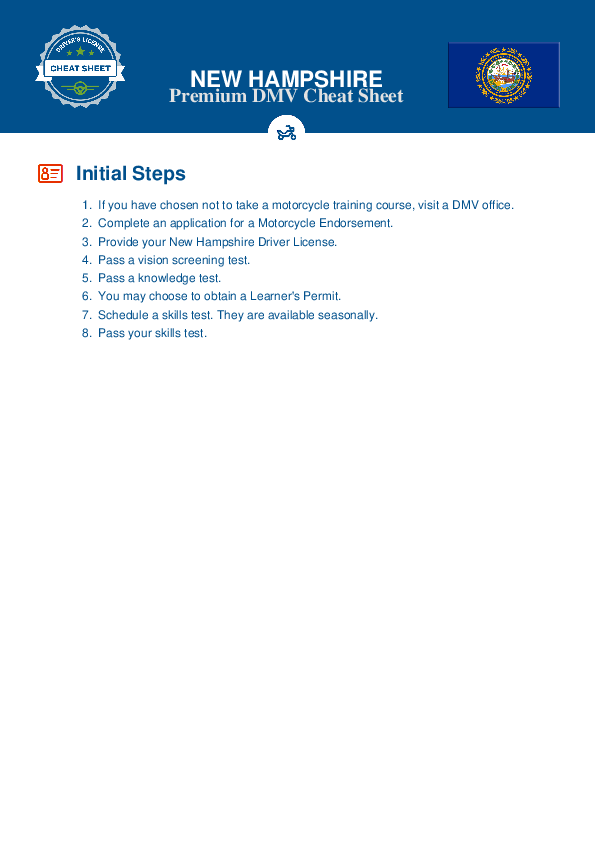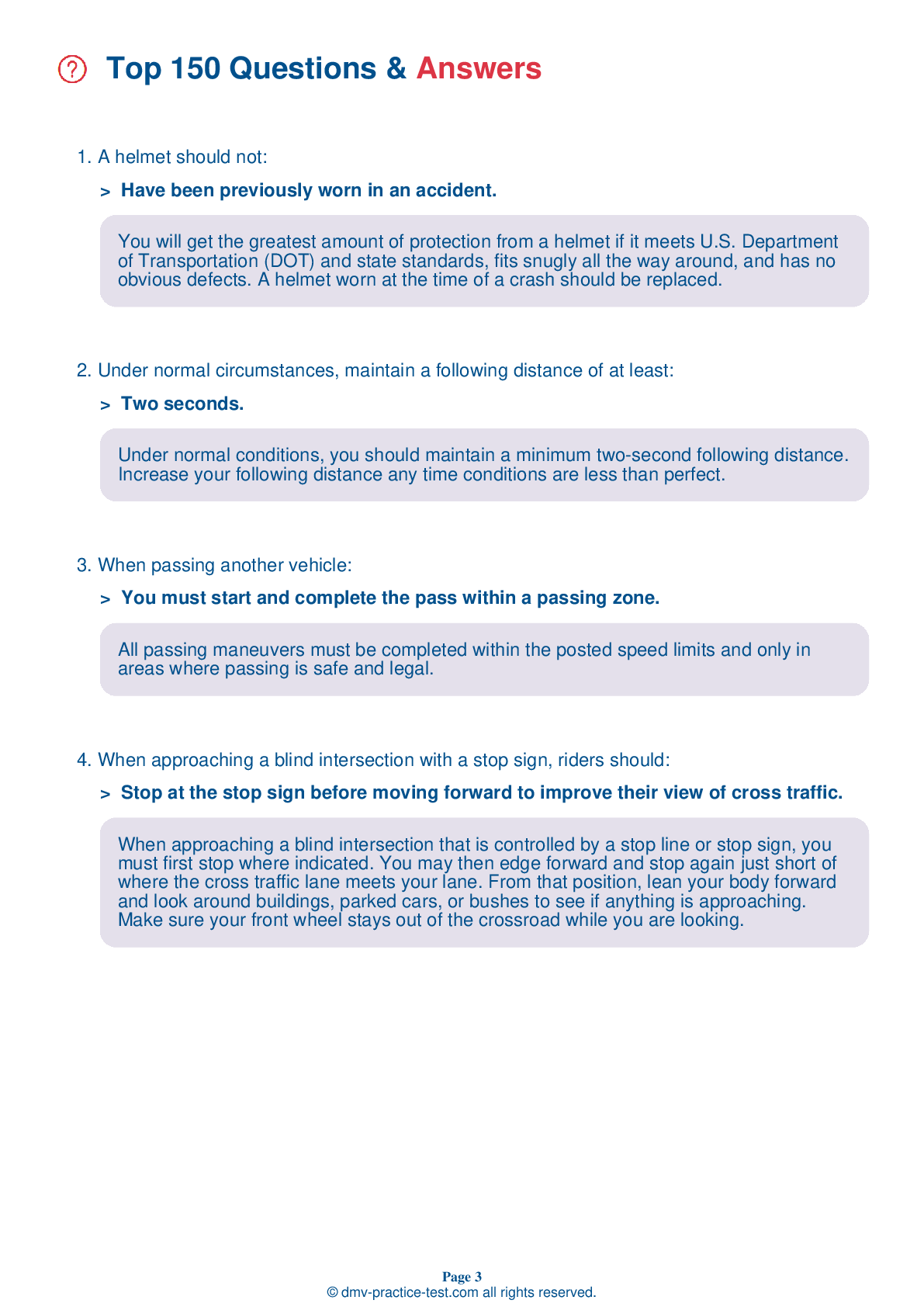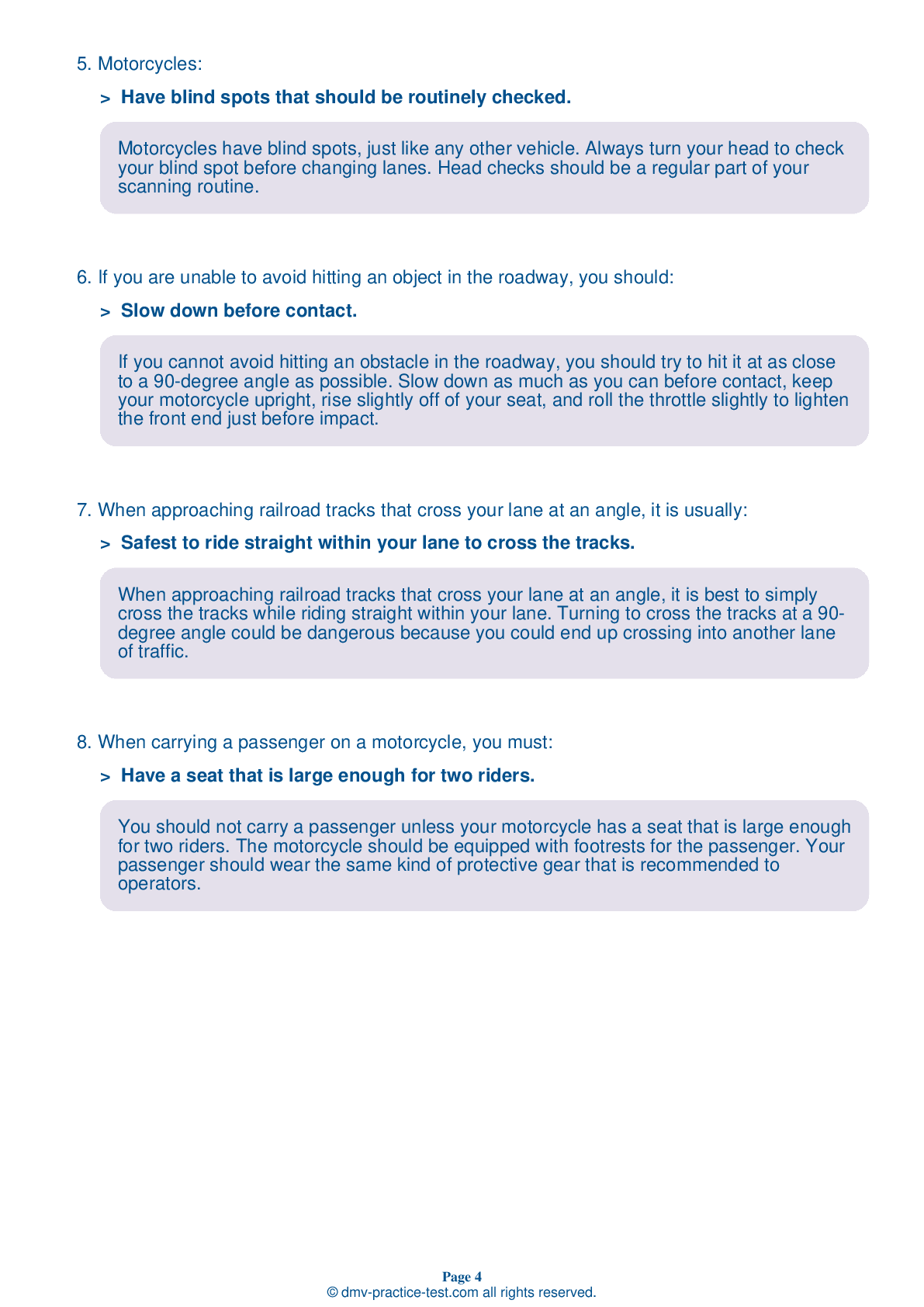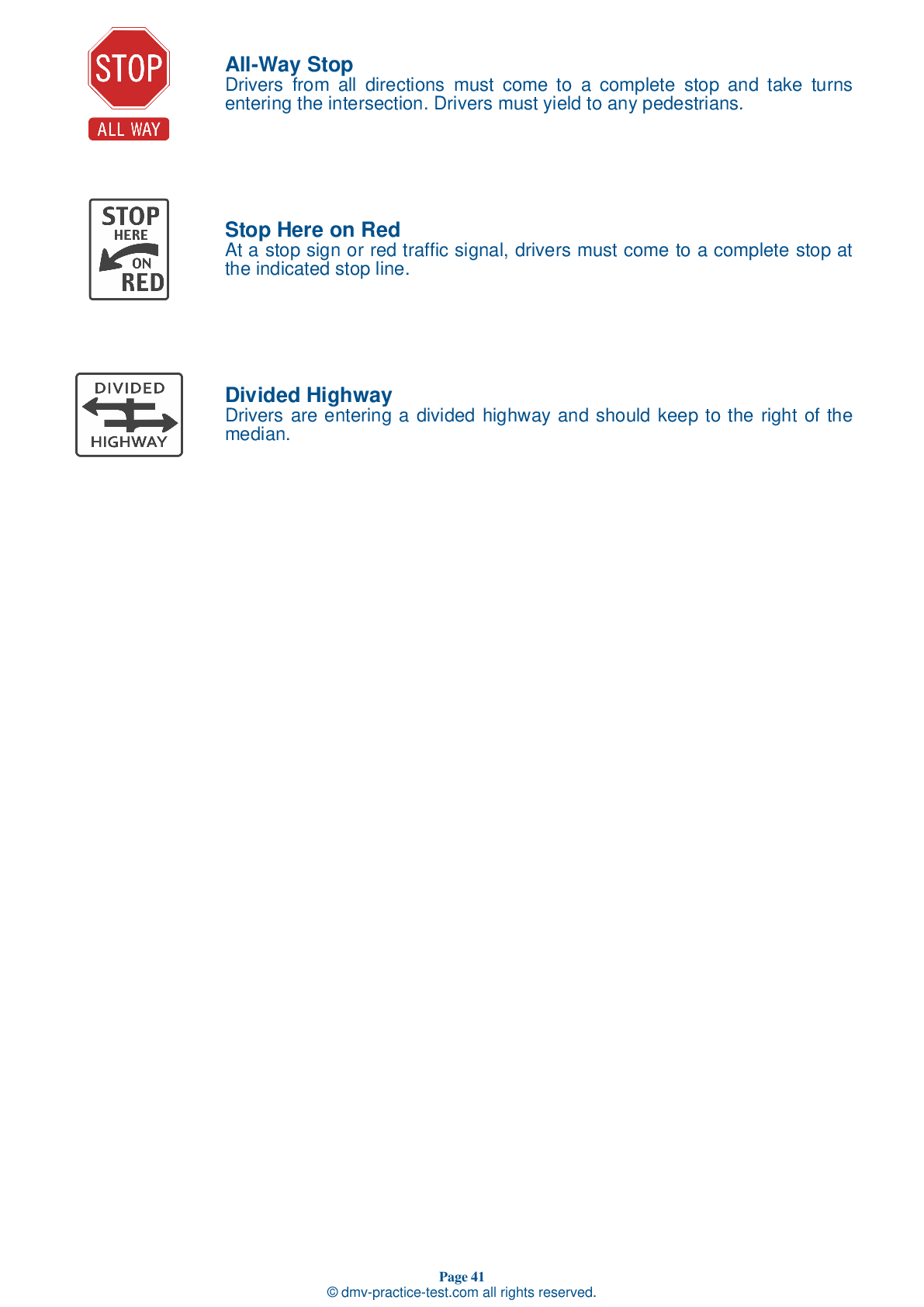Motorcycle Test | License NH 2026 | FREE Online Practice! #8 Page 3 of 4
Take this FREE motorcycle test (license in NH 2026) to check your knowledge of the road rules. To improve your results, download a motorcycle handbook online, study theory, and practice for free on our website. Still worried about how to get a motorcycle license in New Hampshire in 2026? Check our website for more sample tests, train as much as possible, and boost your grades!
13 . In general, when parked on the road, a motorcycle should be:
If parking in a parallel parking space next to a curb, you should position the motorcycle at a 90-degree angle with the rear wheel to the curb.
14 . When riding on a slippery surface, you should:
Avoid making sudden moves when riding on a slippery surface. Any sudden change in speed or direction can cause a skid. Operate as smoothly as possible when speeding up, shifting gears, turning, or braking.
15 . When approaching a blind intersection with a stop sign, riders should:
When approaching a blind intersection that is controlled by a stop line or stop sign, you must first stop where indicated. You may then edge forward and stop again just short of where the cross traffic lane meets your lane. From that position, lean your body forward and look around buildings, parked cars, or bushes to see if anything is approaching. Make sure your front wheel stays out of the crossroad while you are looking.
16 . Your lane position should:
A properly chosen lane position should provide a number of benefits, including an increased ability to see others and to be seen. It should help you avoid wind blasts, other drivers' blind spots, and surface hazards. Your lane position should discourage other drivers from trying to share your lane and provide you with an escape route, should a hazard arise.
17 . When riding at night, a motorcyclist should:
Riding at night can be dangerous because a rider’s ability to see and be seen by fellow motor vehicle operators is limited. It is recommended that riders adjust their riding behavior to compensate for this limited visibility by reducing their speed, maximizing their headlight usage, and increasing their following distance.
18 . During your pre-ride inspection, you should check all of the following, except the:
Before setting off on any ride, you should do a thorough check of your motorcycle. Inspect the tires, oil and fluid levels, headlight, tail light, turn signals, brake light, clutch and throttle, mirrors, brakes, and horn.
See the exact questions that will be on the 2026 New Hampshire DMV exam.
99.2% of people who use the cheat sheet pass the FIRST TIME
Jeneen was tired of paying $5/gallon. She got herself a scooter that required the motorcycle license. She studyed the motorcycle test cheat sheet and passed her test the next day!
Christopher tells us how he knew nothing prior to obtaining the motorcycle study guide, and he only got one question wrong because he clicked on the wrong answer by mistake.



